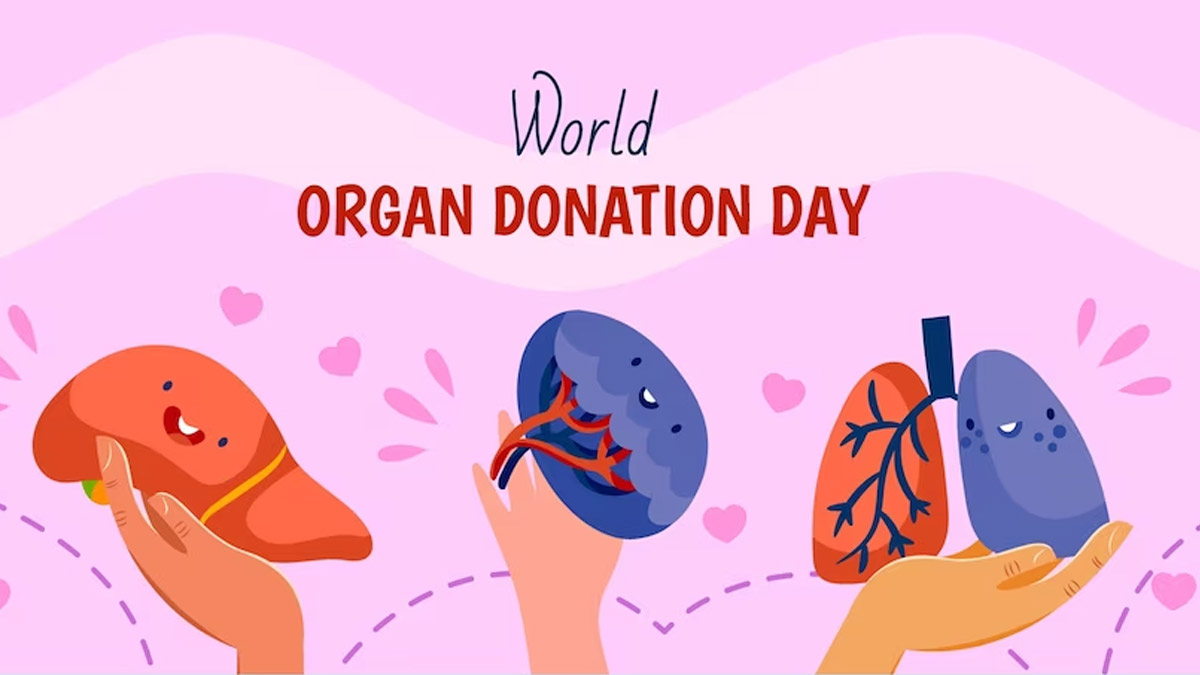
Organ donation has the power to save lives, restore health, and provide a second chance to those in need. However, despite its potential to make a profound impact, organ donation often faces cultural and religious misconceptions that hinder its progress. Addressing and overcoming these barriers is crucial to ensuring that more lives can be transformed through this life-saving practice.
Table of Content:-
Organ Shortage in India
According to the Directorate General Of Health Services, Ministry of Health and Family Welfare, Government of India, the shortage of organs in India presents a significant challenge, with a considerable disparity between the number of patients in need of transplants and the available organs.
It stated that each year, approximately 1,80,000 individuals experience renal failure, yet the number of renal transplants conducted remains limited, totalling only 6,000. Liver failure or liver cancer claims the lives of an estimated 200,000 patients annually, and approximately 10-15% of these cases could be prevented through timely liver transplants.

This underscores the necessity for around 25,000-30,000 liver transplants annually, but the current number falls drastically short at just 1,500. Similarly, heart failure affects around 50,000 individuals each year, but the count of heart transplants conducted in India hovers between 10-15. The situation is equally concerning for cornea transplants, with only 25,000 performed yearly compared to the substantial need of 100,000.
Also Read: Organ Donation In India: Ignorance And Changing Perspectives
Thus, the need to break barriers to organ donation becomes inevitable so that more people come forward to save lives. On this World Organ Donation Day 2023, we spoke to Dr Chetan Kalal, Nanavati Max Super Specialty, Director - Hepatology and Liver Transplant, who sheds light on overcoming cultural and religious misconceptions about organ donation.
Cultural Perspectives
"Cultural beliefs and traditions play a significant role in shaping people's attitudes towards organ donation. Some cultures may associate the removal of organs with disrespect for the body or believe that the body should remain intact after death," said Dr Kalal.
"To overcome these misconceptions, education and awareness campaigns are essential. These campaigns should be culturally sensitive, acknowledging and respecting the values and beliefs of different communities while emphasising the altruistic and compassionate aspect of organ donation," he added.
Religious Considerations
"Religious beliefs can also influence attitudes towards organ donation. In some cases, people may fear that organ removal could interfere with an individual's journey in the afterlife," said Dr Kalal.
"However, many religious leaders and scholars have spoken in favour of organ donation, highlighting its potential to save lives as an act of charity and kindness," he added.
"Engaging religious leaders and encouraging open discussions within religious communities can help dispel misconceptions and promote a better understanding of organ donation's compatibility with various faiths," he suggested.
Myths and Facts
Addressing misconceptions with accurate information is essential. "Common myths, such as the notion that doctors may not try as hard to save a registered donor's life, need to be countered with the truth – that medical professionals are committed to saving lives regardless of donor status. Providing transparent and straightforward explanations can help dispel unfounded fears and promote informed decision-making," said Dr Kalal.
Also Read: Why Awareness Regarding Body and Organ Donation Is Very Important In India
Family Conversations

"In many cultures, decisions regarding organ donation involve the entire family. It is vital to facilitate open conversations within families about their views on organ donation," said Dr Kalal. "Encouraging these discussions can help ensure that everyone's perspectives are heard and understood. By addressing concerns and sharing information, families can make more informed decisions that align with their values and beliefs," he added.
Educational Initiatives
"Educational programs and initiatives should be tailored to specific cultural and religious contexts. These programs can include workshops, seminars, and informational materials that provide accurate information about the organ donation process, its impact, and the legal and medical safeguards in place. Collaborating with community leaders, healthcare professionals, and organisations can enhance the effectiveness of these initiatives," said the doctor.
Conclusion
Breaking down cultural and religious barriers surrounding organ donation requires a multi-faceted approach that prioritises education, awareness, and open dialogue. By respecting diverse beliefs, providing accurate information, and engaging communities, we can encourage a more compassionate and understanding perspective towards organ donation.
Overcoming these barriers is not only essential for increasing organ donation rates but also for creating a world where the gift of life can be shared across all cultural and religious boundaries.
[Disclaimer: This article is for informational purposes only. Consult your healthcare provider to get a thorough diagnosis and treatment as per your health needs.]
Image Credits: freepik
Also watch this video
How we keep this article up to date:
We work with experts and keep a close eye on the latest in health and wellness. Whenever there is a new research or helpful information, we update our articles with accurate and useful advice.
Current Version